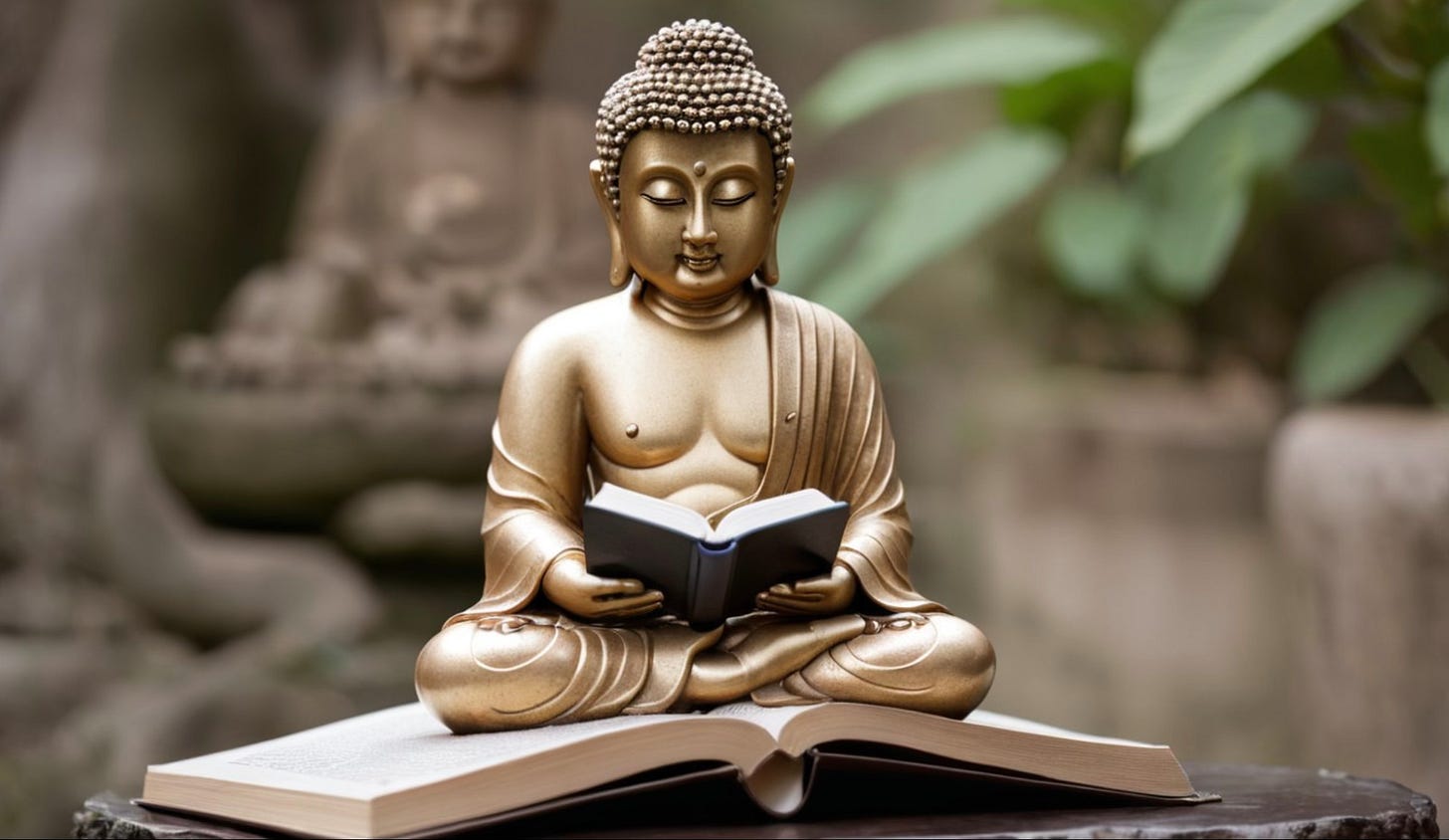Discovering Mindful Writers: Diamond-Michael Scott
Wisdom and reflections from Diamond's writing journey
Welcome to the February “Discovering Mindful Writers Q&A”. Each month, a guest writer answers the same seven questions about their writing life. When I came up with the idea for this series last year, I had no idea that it would prove so popular! It has been great to connect with so many new people both through those who appear in the interview and in the comments that their answers prompt. The schedule is full until the autumn now but do get in touch if you’re interested in answering these questions later in the year. I answered them myself recently and it was a very interesting exercise to answer my own questions!
I am delighted to welcome this month, who writes many Substacks! The one I read is Chocolate Taoist Nation where he shares a daily clarion call to embrace life in a way that's boundlessly interconnected and expansively free. I have been embracing Taiost wisdom for many years and I love how he brings a modern take to these ancient teachings and shows how they can apply in the world we live in today.
I hope you enjoy his answers to my questions. I love what he says about letting the narrative unfold naturally when we write, which is how my practice has developed too.
What do you think about the responses Diamond has given? Do let us know in the comments.
With love,
What does mindful writing mean to you?
To me, mindful writing is embodied writing—not just putting words on a page but becoming fully immersed to the point to where the act of writing becomes seamless, as if the words are not coming from me but through me. This involves the practice of deep listening—to myself, to the world, and to the unspoken truths that arise when I’m fully present with the craft.
How does a mindful writing practice fit into your wider mindfulness journey?
My writing practice is a reflection of a much more expansive, flow-based lifestyle. For me, it’s not just a creative outlet but a grounding mechanism, a way to anchor all the loose pieces percolating around in my mind. Writing allows me to process life’s paradoxes and mysteries, translating them into something tangible and meaningful. It’s where mindfulness meets expression—a space where I can observe, reflect, and connect more deeply with myself and others.
What do you write? Essays, poetry, fiction, plays?
I primarily write essays rooted in the intersections of my lived experiences and Taoist wisdom. My work explores how ancient principles can offer clarity in today’s paradoxical, chaotic world. These essays are part personal narrative, part philosophical exploration, and they aim to bridge timeless teachings with modern complexities.
What drives you to write?
What drives me is the desire to offer my readers inner wisdom—a sense of respite and perspective amid today’s paradoxical, mysterious, and uncertain world. Writing is my way of creating a sanctuary of thought, a place where complexity can be untangled and where readers can feel seen, understood, and inspired to engage with life on a deeper level.
What stops you from writing?
Distractions emanating from not trusting my inner self. When I lose faith in my ability to articulate what matters or question whether my voice has value, it can create a wall between me and the page. The key is to recognize this self-doubt as part of the process and not let it define me.
What do you aspire to achieve with your writing?
Community, connection, and conversation. I aspire to spark dialogues that matter, to create a sense of shared humanity, and to inspire people to think differently about themselves and the world around them. Writing is my way of weaving threads between people, ideas, and philosophies, creating a tapestry that uplifts and unites.
How do you write? Are you a planner or do you just start writing from an idea and let it lead you?
I take breadcrumbs of ideas from my lived experiences that I’ve recorded in my journal and just run with them. I rarely plan in the traditional sense. Instead, I follow the threads of curiosity, allowing the writing to unfold organically. This approach mirrors the Taoist philosophy I hold dear—trusting the process, letting go of control, and allowing the narrative to flow where it naturally wants to go.
Thanks so much for your time and sharing your insights and inspirations, Diamond.
Next month’s guest is who writes Quiet Reading, which is a weekly refuge for our shared humanity inspired by authors, books, and this world of marvels.
Read previous interviews in the series here.
Thank you for reading The Mindful Writer. If you enjoy my posts and would like to commit to a slower, more mindful writing practice, please consider becoming a supporter for only £5 a month. You’ll get a Mindful Writing Ebook, monthly Zoom Mindful Writing Marathons, and monthly in-depth “The Writing Sanctuary” posts that can help you connect more deeply to yourself, your craft, our human family and the world we live in.
Or you can buy me a cup of tea to say thanks for the posts!










I'm a big fan of Diamond-Michael Scott's Chocolate Taoist blog! I'm even exploring the I Ching because of him! He is joyful and expresses mindfulness in a playful way.
Great to see Diamond-Michael here. His smile, his enthusiasm, and his wise writings are a highlight on Substack!